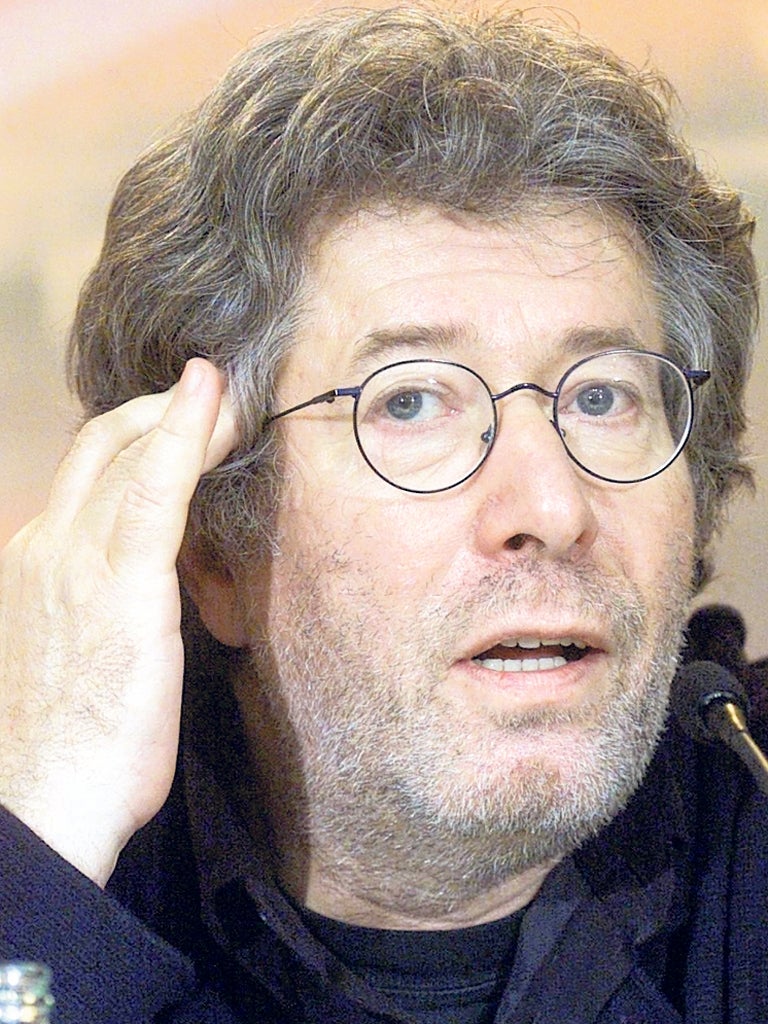Claude Miller: Film director who showed the dark side of youth

Claude Miller didn't do lightweight. His best-known film, Garde à vue, an adaptation of the novel Brainwash by the British crime writer John Wainwright, is a dark thriller revolving around the police interrogation of a lawyer accused of raping and murdering two little girls. The viewer is never quite sure whether the inspector, played by Lino Ventura, should pin the ghastly crimes on the suspect, the wonderfully ambiguous Michel Serrault, who knows the law inside out but appears almost too willing to dig himself into a hole.
The film attracted more than two million French cinema-goers and deservedly won four Césars in 1982, Serrault for Best Actor and Guy Marchand for Best Supporting Role, as Ventura's sidekick, as well as Best Editing for Albert Jurgenson and Best Screenplay for Miller, Jean Herman and Michel Audiard. In 2000, Garde à vue was remade as Under Suspicion by Stephen Hopkins, with Morgan Freeman trying to corner Gene Hackman into a confession, but its disturbing premise meant the movie only received a limited US release.
Miller was a daring film-maker, tackling bullying and homosexuality in his acclaimed feature-length debut, La Meilleure Façon De Marcher (The Best Way To Walk, 1976) which starred the troubled Patrick Dewaere. Paedophilia was the subject of La Classe De Neige (Class Trip) which shared the Jury Prize at Cannes with Festen and Velvet Goldmine in 1998, while incest was hinted at in Mortelle Randonnée (Deadly Circuit, 1983) which featured Serrault as a private detective obsessing over a young serial killer portrayed by Isabelle Adjani. Based on a Marc Behm book, it got a Hollywood makeover in 1999 as Eye Of The Beholder by Stephan Elliott with Ashley Judd and Ewan McGregor, yet still bombed at the US box-office.
The director was happier adapting the work of others, and turned Patricia Highsmith's psychological thriller This Sweet Sickness into Dites-Lui Que Je L'Aime (Tell Her I Love Her, 1977), Ruth Rendell's novel Tree Of Hands into Betty Fisher Et Autres Histoires (Betty Fisher And Other Stories, 2001) and Chekhov's The Seagull into La Petite Lili (Little Lili, 2003). "I really struggle to write original screenplays," he admitted. "I can start a story off but I generally have difficulty bringing it to a conclusion, because death is often at the end of a tale."
Born in 1942, he avoided deportation thanks to his father's refusal to wear the Star of David during the infamous rafles, the mass arrests of Jewish families in Paris. His uncle Serge was not so lucky, though he did manage to escape from Buchenwald. The death of an older sister, Annie, was a family secret that haunted him. It informed the questioning nature of his heroines and fed into the sensitive handling and inspired casting of an 18-year-old Romane Bohringer opposite her father Richard Bohringer in L'Accompagnatrice (The Accompanist, 1992), as well as the two commercially successful and critically acclaimed coming-of-age-films he made with Charlotte Gainsbourg. Miller played an important part in Gainsbourg's emergence, casting her at 14 as the impudent teenager in L'Effrontée, a role for which she was awarded the Most Promising Actress César in 1986. Two years later, she was the troublesome lead in La Petite Voleuse (The Little Thief, 1988) based on an unfinished screenplay by François Truffaut, Miller's friend and mentor.
After majoring at the IDHEC – Institut Des Hautes Etudes Cinématographiques – in 1962, Miller did his military service in an army film unit. From 1965 he was assistant director to Robert Bresson, Jacques Demy and Jean-Luc Godard, and production manager on all of Truffaut's films between 1969 and 1975, including L'Enfant Sauvage, in which he and his wife also acted. He and Truffaut shared a certain sensibility and the recurring themes of childhood and adolescence, also at the core of Miller's tale of abandonment Je Suis Heureux Que Ma Mère Soit Vivante (I'm Glad My Mother Is Alive, 2009)
"Experiences in youth are formative and profound," said Miller. "Very often, my characters are young. I am fascinated by how children deal with adults... Adults wage war on children. How can a child defend himself against a dangerous or toxic parent? The child discovers that his only weapon or defence is imagination and it is through imagination that he protects himself."
Indeed, his world view was of a darker hue than Truffaut's, even if both were profoundly influenced by Ingmar Bergman and Alfred Hitchcock. "Bergman was doing scary films but not thrillers," Miller said. "He was a great director of anxiety and fear."
His father had been a cinema usher and Miller emphasised the importance of the cinema-going experience. He headed several film committees, including Europa Cinemas, the European exhibitors' network, and stressed the importance of the tax breaks that help French cinema punch above its weight. "As I get older, I understand that directing films is one of the things that brings me the most pleasure. Otherwise, I feel a bit lost," said Miller who, despite the onset of cancer, completed his last project, Thérèse D, an adaptation of the François Mauriac novel Thérèse Desqueyroux, with Audrey Tautou.
Claude Miller, film director: born Paris 20 February 1942; married (one son); died Paris 4 April 2012.
Subscribe to Independent Premium to bookmark this article
Want to bookmark your favourite articles and stories to read or reference later? Start your Independent Premium subscription today.

Join our commenting forum
Join thought-provoking conversations, follow other Independent readers and see their replies